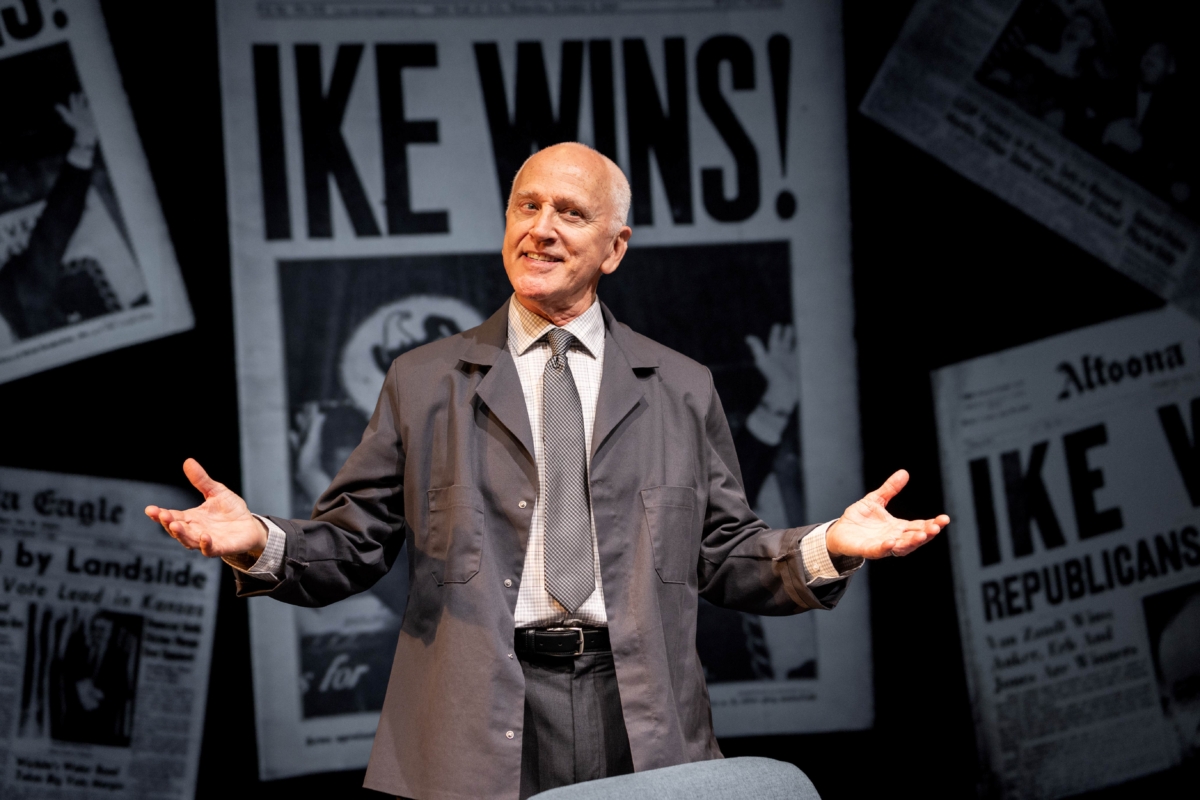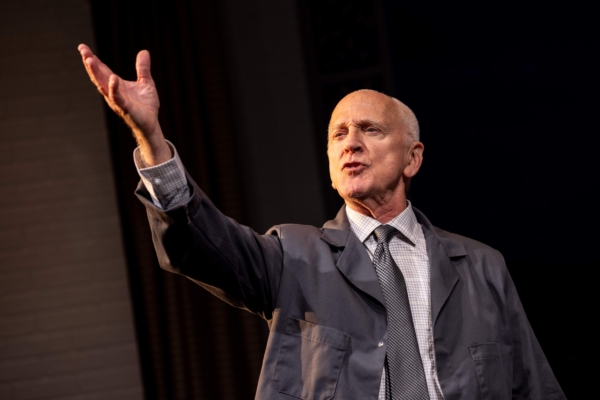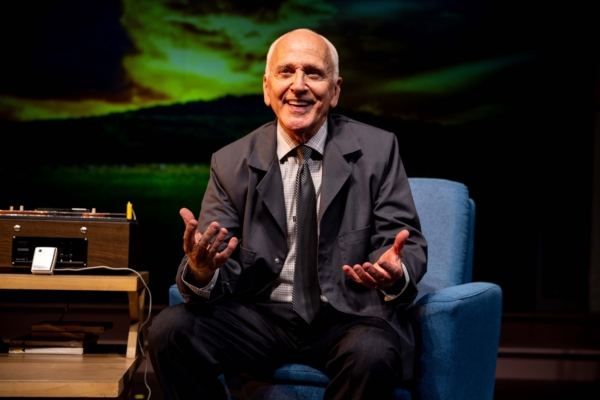


NEW YORK—Books, movies, people, and events can all be seen differently with the passage of time. Some rise in stature while others are brought down by changing attitudes and the perspective of hindsight. This premise serves as the starting point for Richard Hellesen’s one-person drama, “Eisenhower: This Piece of Ground,” now at Theatre at St. Clement’s.
It’s August of 1962 and 71-year-old Dwight D. Eisenhower (John Rubinstein), former five-star general and recent president of the United States, is in a foul mood. A just-released New York Times Magazine poll of 75 historians has ranked the accomplishments of past presidents and placed him 22nd out of 31. Eisenhower, who is in the midst of dictating his memoirs, is determined to set the record straight and prove he deserves far better than the “mediocre” rating he received.
As Eisenhower recalls different moments in his life, one point he comes back to time and again is the importance of sticking to his convictions, such as a decisions he made concerning the invasion of Europe in World War II, and pushing for the creation of an interstate highway system in the United States.
Even when the final results of his decisions weren’t everything he hoped for (he mentions the conflict in Korea as an example), Eisenhower had no regrets for the actions he took. What he did regret were the times he allowed other people’s opinions to sway his decisions on such matters as the U-2 Spy Incident or regarding Senator Joe McCarthy, where he feels he failed to do the job for which he was elected.
The play also explores the reality that, even when one is president of the United States, there are limits on what a leader can actually make happen. The power to enact change through executive decisions can only go so far, as the president is dependent on Congress to legislate policies or ideas into law. This is something Eisenhower makes clear in regard to desegregation of the U.S. Armed Forces, which he concluded to his satisfaction, and the enactment of Civil Rights legislation, which he did not.
It quickly becomes clear Eisenhower sees himself as a plain-speaking man and one who has little appetite for such labels as “liberal” or “conservative.” His approach was to always stay in the middle of the road. As in driving, if you “steer too far to the left or the right, you end up in a ditch.”
This practical attitude was instilled in Eisenhower during childhood, which is where he also acquired his lifelong sense of duty and responsibility, both moral and fiscal. This understanding of the importance of doing the right thing was also what led to his career in the military and in politics, even though he never really saw either as a calling.
More than just a look at his career, the play also examines important moments in Eisenhower’s personal life, all of which allowed the audience to get a better understanding of the man behind the public persona.
Eisenhower had a deep appreciation for history and an even deeper regret how, as a boy growing up in Kansas at the turn of the 20th century, he never took the time to listen to the stories of veterans from the Civil War.
Also explored is Eisenhower’s relationship with his wife Mamie (“I couldn’t have done any of what I did without her”), and the profound impact his parents, especially his mother, had on him.
Continuously dropped into the story are interesting bits of historical trivia. One mentions the actions of Senator Lyndon B. Johnson in regard to Eisenhower’s efforts on Civil Rights. The result takes on a rather ironic tone when one considers Johnson’s own actions in the area when he assumed the presidential mantle.
Mr. Rubinstein gives a good performance as Eisenhower. He portrays the man as someone happy at his time in life, yet at the same time looking back on past decisions he made with a mixture of pride and sadness. He shows Eisenhower plagued by self-doubts about how he will be remembered after he’s gone. The answer to that question was ultimately revealed via the results of subsequent presidential rankings by historians, as revealed at the end of the play.
Peter Ellenstein’s direction is tightly focused, allowing the story to unfold without haste or urgency. Michael Deegan’s scenic design for the Eisenhower farm, one of several references to a “Piece of Ground,” offers a nice combination of function and hominess. Projection design by Joe Huppert is strong throughout.
“Eisenhower: This Piece of Ground” presents an intriguing portrait of a man who had to make some far-reaching decisions when it came to events in the United States and the world, many of which are still felt today.
The show also succeeds in making one want to learn more about Eisenhower which was a comment I overheard a person in the row in front of me mention during intermission.
‘Eisenhower: This Piece of Ground’
Theatre at St. Clement’s
423 W. 46th St., New York City
Tickets: EisenhowerThePlay.com
Running Time 1 hour, 50 minutes (one intermission)
Closes: Aug. 20, 2023
Please note: The theatre is not wheelchair accessible
Would you like to see other kinds of arts and culture articles? Please email us your story ideas or feedback at features@epochtimes.nyc



